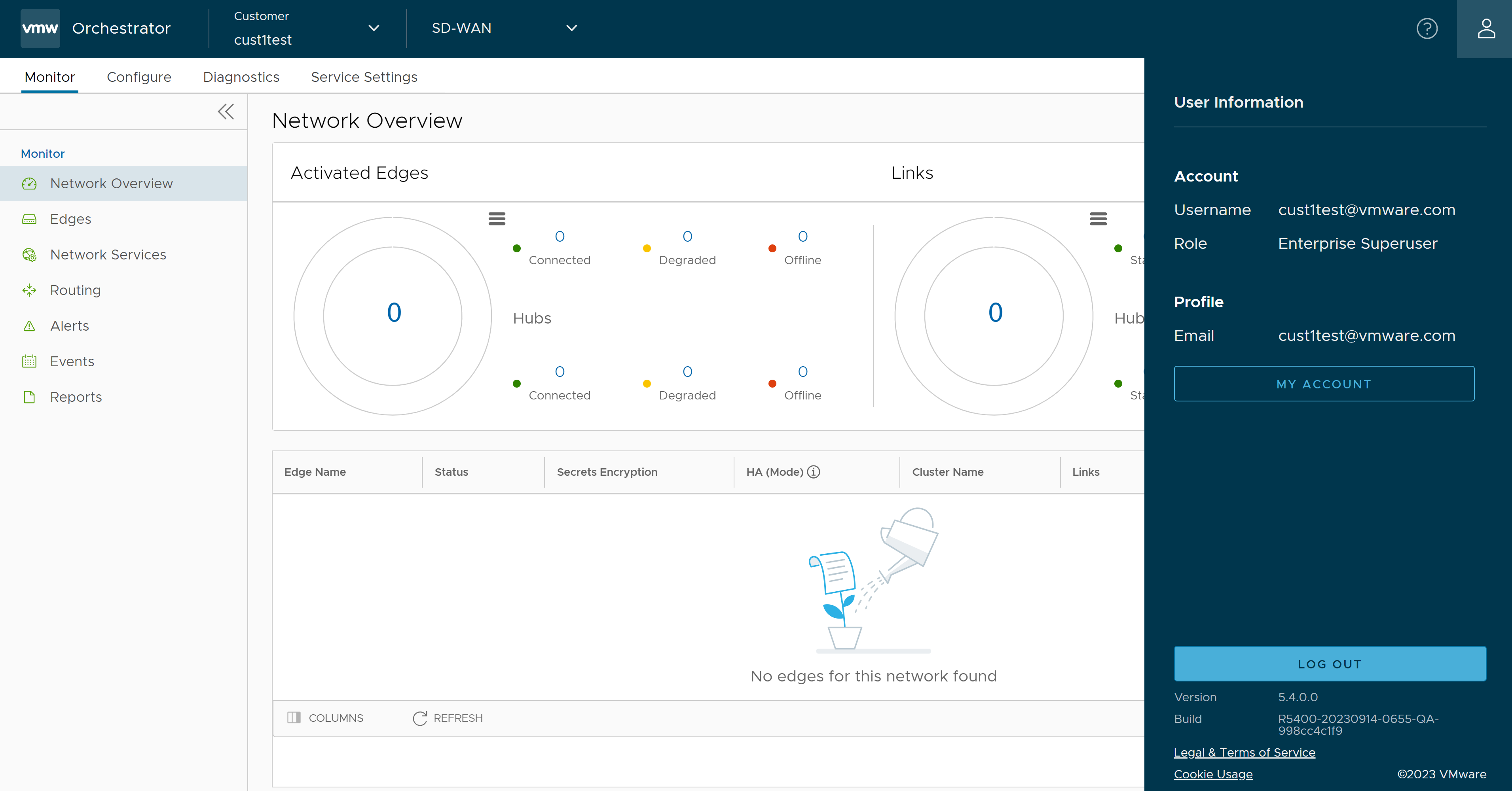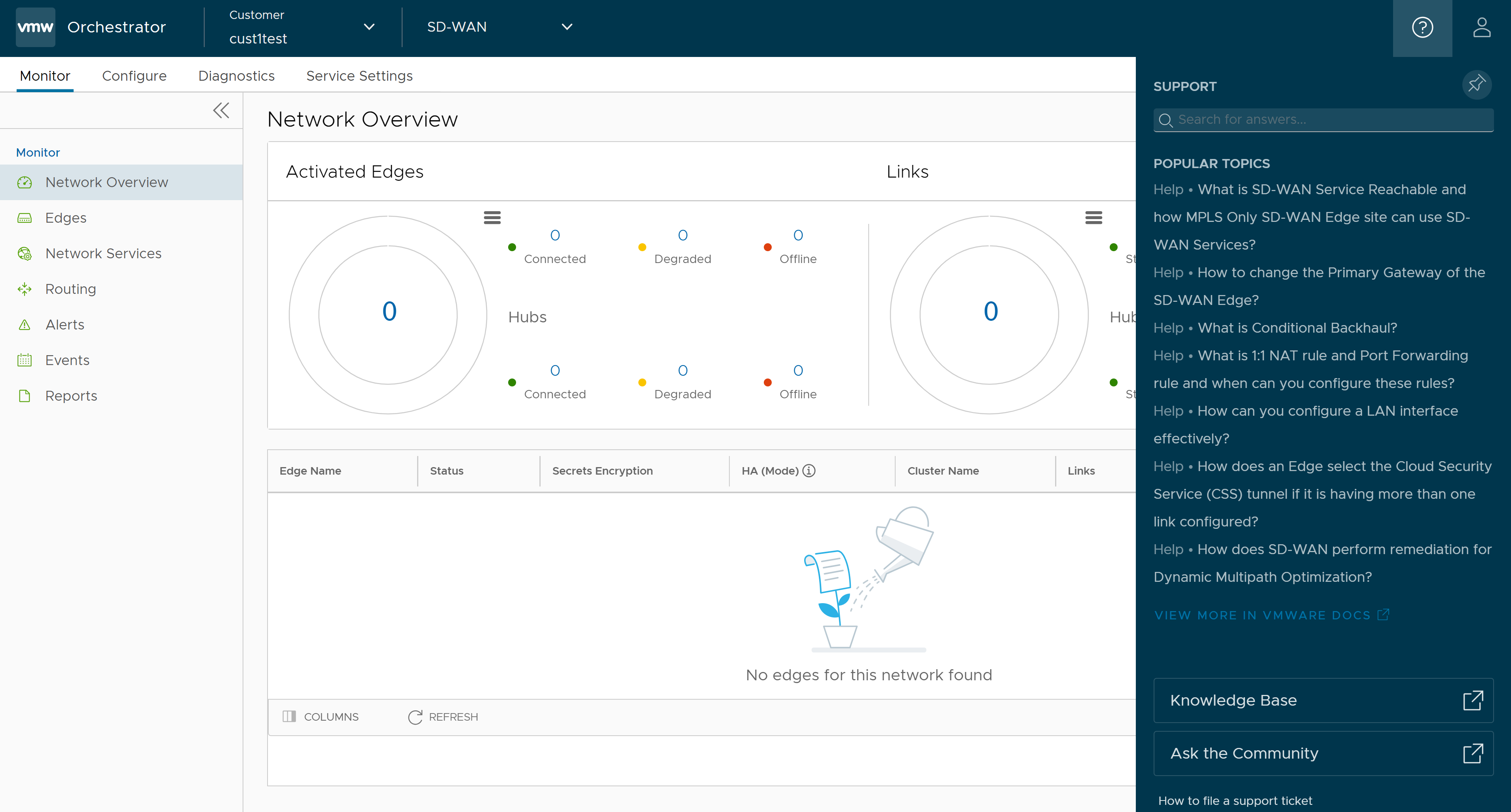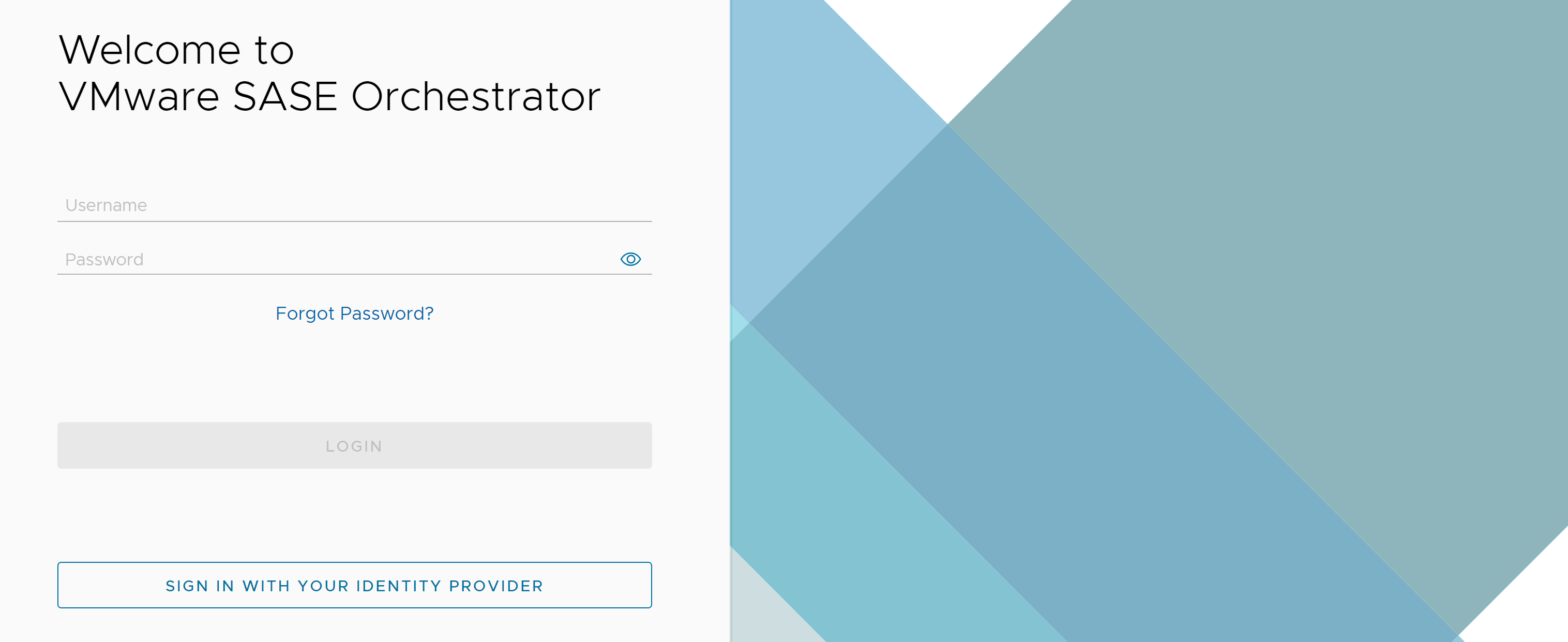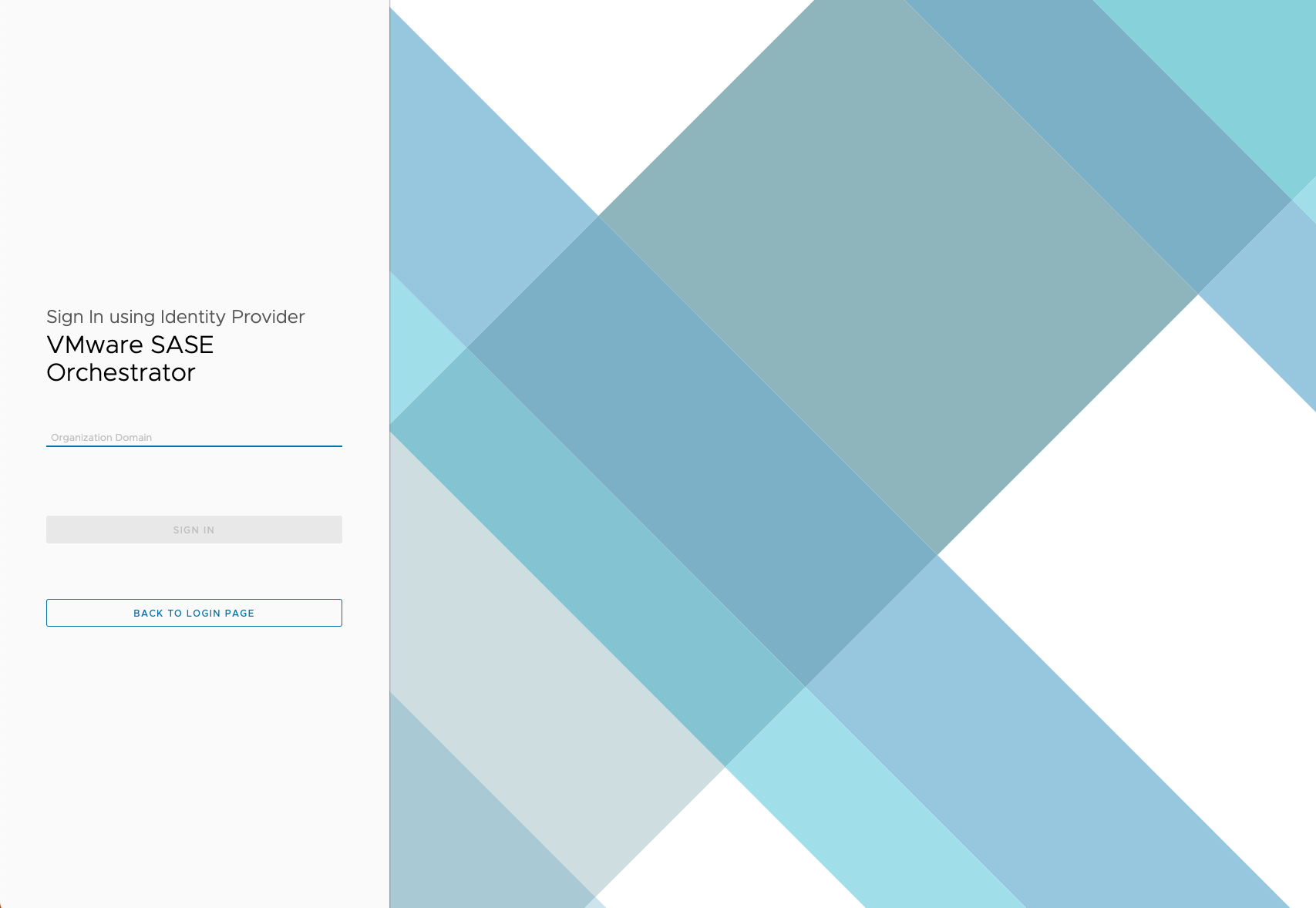Describes how to log in to VMware SASE Orchestrator using Single Sign On (SSO) as an Enterprise user.
Prerequisites
- You must configure the SSO authentication in SASE Orchestrator.
- You must set up users, roles and OIDC application for the SSO in your preferred IDPs.
For more information, see the topic Authentication in VMware SASE Global Settings Guide, located at https://docs.vmware.com/en/VMware-SD-WAN/index.html.
Procedure
What to do next
- Monitor Customers
- Configure Customers
- Configure Service Settings
- Test and Troubleshoot Edges
Additionaly, in the
SASE Orchestrator home page, you can access the following features from the Global Navigation bar:
- The user can click the User icon located at the top right of the screen to access the My Account page. The My Account page allows users to configure basic user information, SSH keys, and API tokens. Users can also view the current user's role, associated privileges, and additional information such as version number, build number, legal and terms information, cookie usage, and VMware trademark. For more information, see Configure User Account details.

- Starting with the 5.4.0 release, the In-product Contextual Help Panel with context-sensitive user assistance is supported in the SD-WAN service of the Enterprise Orchestrator UI and as well as for the Operator and Partner levels. In the Global Navigation bar, click the Question Mark icon located at the top right of the screen to access the Support panel.
The Support panel allows users across all levels to access helpful and important information such as Question-Based Lists (QBLs), Knowledge base links, Ask the Community link, how to file a support ticket, and other related documentation from within the Orchestrator UI page itself. This makes it easier for the user to learn our product without having to navigate to another site for guidance or contact the Support Team.
Note: By default, the Support Panel is not available to all Enterprise users. Contact your Operator or Partner Admins if you want to activate the In-product Contextual Help Panel feature.

